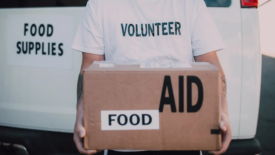Recall/Crisis Management
The story of the 1992–1993 Jack in the Box outbreak is well documented, but how E. coli O157:H7 first showed up on the radar is less known
Read More
How Restaurant Operators can Handle Food Poisoning Allegations
Restaurants must handle foodborne illness claims professionally, and a framework for investigating consumer food poisoning allegations must be in place
October 11, 2022
The Incident Command System and Foodborne Illness Outbreak Investigations
The Coordinated Outbreak Response and Evaluation (CORE) Network is the coordination focal point for all FDA resources during outbreak investigations
October 11, 2022
Never miss the latest news and trends driving the food safety industry
eNewsletter | Website | eMagazine
JOIN TODAY!Copyright ©2024. All Rights Reserved BNP Media.
Design, CMS, Hosting & Web Development :: ePublishing











